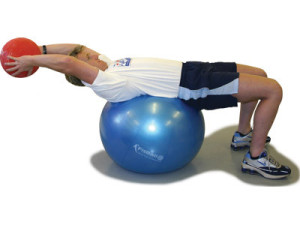Sports Med. 2016 Jul 30. [Epub ahead of print]
Core Stability in Athletes: A Critical Analysis of Current Guidelines.
Wirth K1, Hartmann H2, Mickel C3, Szilvas E3, Keiner M4, Sander A5.
Author information
1University of Applied Sciences Wiener Neustadt, Wiener Neustadt, Austria.
2Department of Human Movement Science and Athletic Training, Institute of Sports Sciences, Goethe-University, Frankfurt am Main, Germany. Hagen-Hartmann@online.de.
3Department of Human Movement Science and Athletic Training, Institute of Sports Sciences, Goethe-University, Frankfurt am Main, Germany.
4Swimming Federation of the State Lower Saxony, Hannover, Germany.
5Bobsleigh and Luge Federation Germany, Berchtesgaden, Germany.
Abstract
Over the last two decades, exercise of the core muscles has gained major interest in professional sports. Research has focused on injury prevention and increasing athletic performance. We analyzed the guidelines for so-called functional strength training for back pain prevention and found that programs were similar to those for back pain rehabilitation; even the arguments were identical. Surprisingly, most exercise specifications have neither been tested for their effectiveness nor compared with the load specifications normally used for strength training. Analysis of the scientific literature on core stability exercises shows that adaptations in the central nervous system (voluntary activation of trunk muscles) have been used to justify exercise guidelines. Adaptations of morphological structures, important for the stability of the trunk and therefore the athlete’s health, have not been adequately addressed in experimental studies or in reviews. In this article, we explain why the guidelines created for back pain rehabilitation are insufficient for strength training in professional athletes. We critically analyze common concepts such as ‘selective activation’ and training on unstable surfaces.
Source


No comments:
Post a Comment